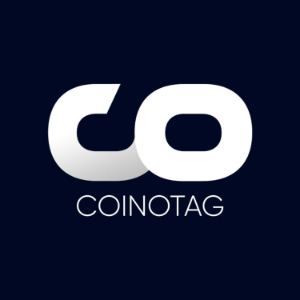Decentralized finance gains ground in Yemen amid US sanctions
3 min read
Locals in Yemen have turned to decentralized finance as a way to navigate sanctions imposed by the United States that have cut off access to traditional banking services. According to blockchain intelligence firm TRM Labs, some Yemenis are increasingly using DeFi protocols to send and receive funds, manage remittances, and bypass disruptions to local financial services. Over 63% of Yemen’s crypto-related web traffic is now tied to DeFi platforms, while global centralized exchanges account for just 18%, according to TRM’s data. The trend follows several rounds of US sanctions targeting the Houthis and Yemen’s financial infrastructure. Most recently, on April 17, the US Treasury sanctioned the International Bank of Yemen for allegedly facilitating financial transactions on behalf of the Houthis. As such, the broader Yemeni population, especially in Houthi-controlled areas, is increasingly turning to decentralized tools as banking institutions remain inoperable or unreliable. Peer-to-peer crypto transactions are also being used for cross-border transfers and remittances. Although the volume of these transactions remains relatively low, they indicate growing adoption of decentralized infrastructure in the absence of formal alternatives. You might also like: AI-Powered DeFi platform Glider raises $4m, led by Andreessen Horowitz The appeal of crypto in Yemen lies in its “ability to bypass the disruption in local financial services offers a modicum of financial resilience,” TRM Labs wrote, adding that an uptick in DeFi use is indicative of growing apetite for “systems that allow users to transact without intermediaries, particularly where local banking institutions are inaccessible or unreliable.” With few standalone crypto exchanges available, Yemenis are also increasingly turning to local money service businesses that now offer crypto alongside traditional services. A Yemen-based crypto exchange tracked by TRM Labs saw a 270% spike in activity after the Houthis were relisted as a terrorist group by the Biden administration in January 2024. It surged again by 223% following Donald Trump’s election and the subsequent designation as a Foreign Terrorist Organization in early 2025. TRM Labs expects crypto adoption in Yemen to continue rising as international sanctions tighten, not just against the Houthis but also their key ally, Iran. These restrictions could push both civilians and sanctioned actors toward “growing adoption” of crypto, with usage likely to expand “in both scale and sophistication” as traditional financial options become increasingly limited, the blockchain intelligence firm concluded. Crypto as a lifeline asset Yemen isn’t alone in turning to crypto during times of crisis. Across Eastern Europe, countries like Ukraine and Russia have also witnessed a surge in adoption, with both institutional and retail users increasingly relying on decentralized finance amid ongoing instability. As previously reported by crypto.news, Ukraine recorded a 362% increase in large institutional DeFi transactions between 2023 and 2024, while grassroots adoption also surged, with small and large retail transfers climbing by 82.2% and 92%, respectively. Elsewhere, Argentinians have turned to stablecoins like USDT and USDC to escape runaway inflation, which topped 276% in March 2024. Local exchanges saw a surge in activity as residents rushed to protect their salaries from rapid devaluation, often converting pesos into digital dollars at the start of each month. Meanwhile, in Venezuela, where hyperinflation and capital controls have devastated the economy, Bitcoin has been hailed as a “lifeline” asset . Read more: Exclusive with 1inch co-founder: Are DEX aggregators the future of DeFi?

Source: crypto.news



